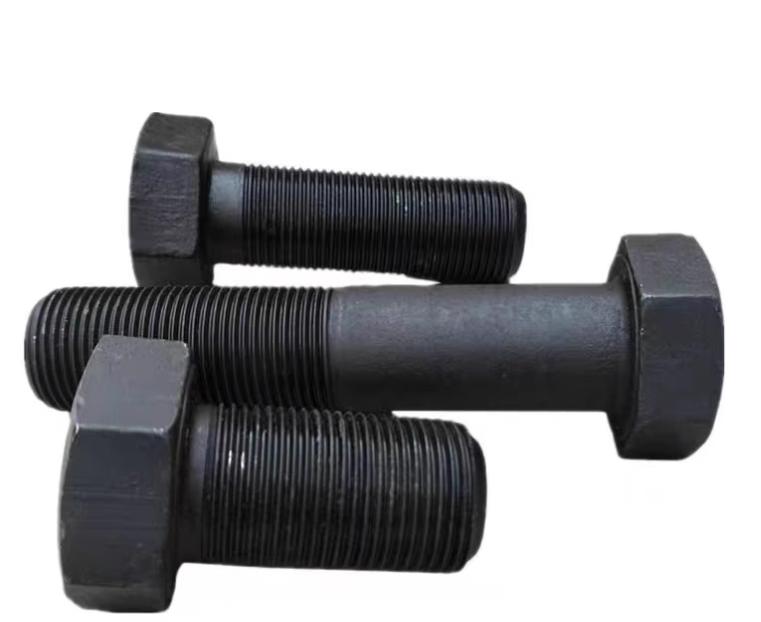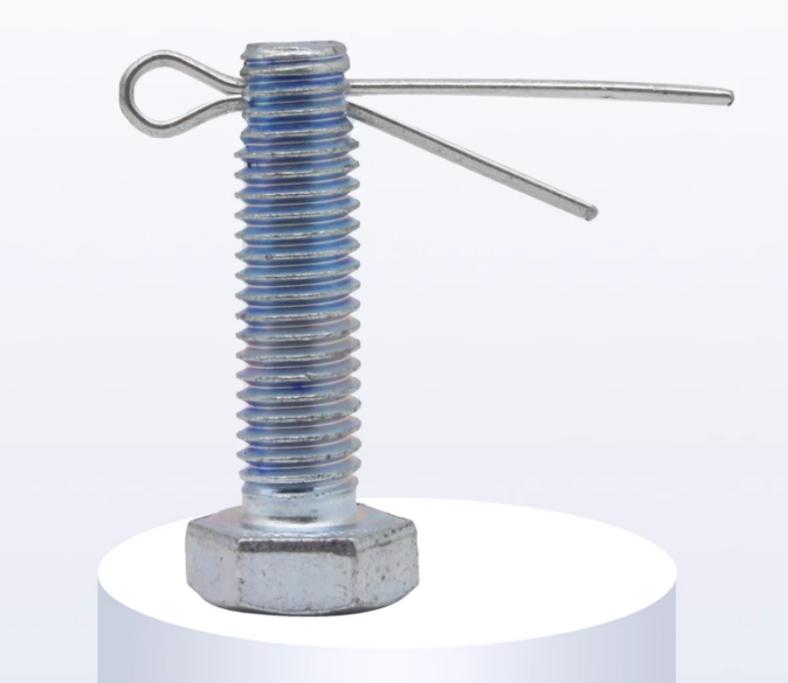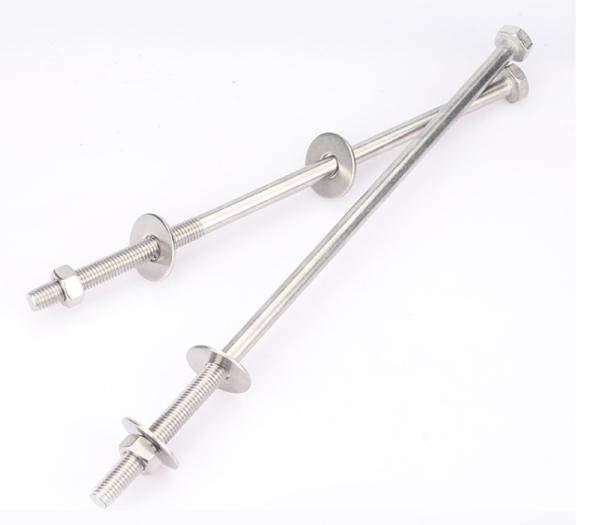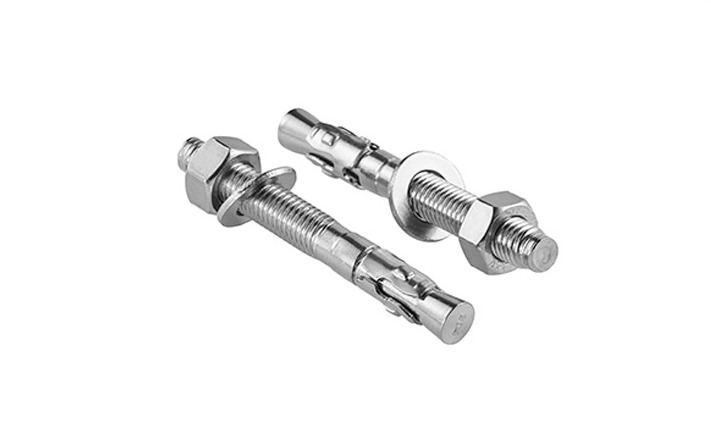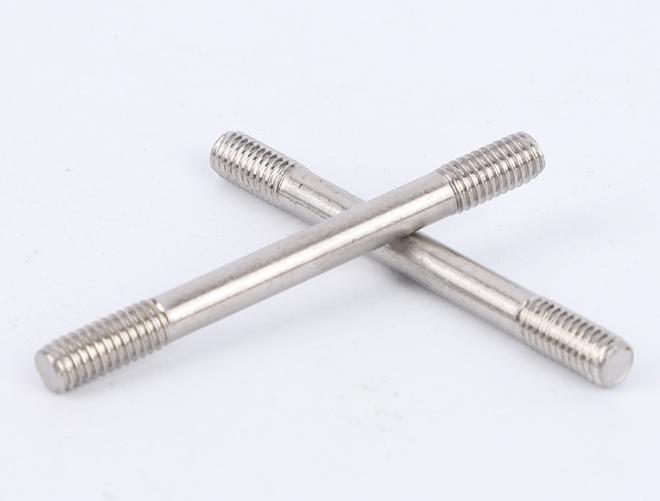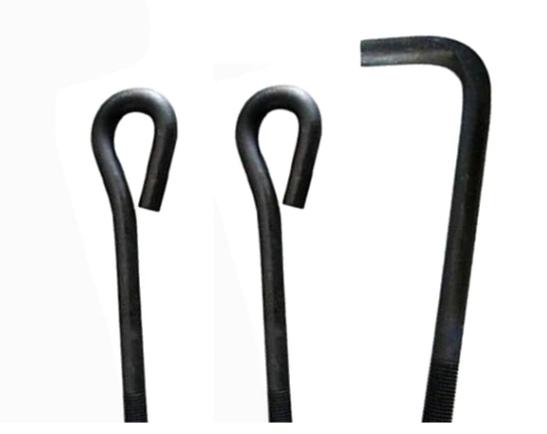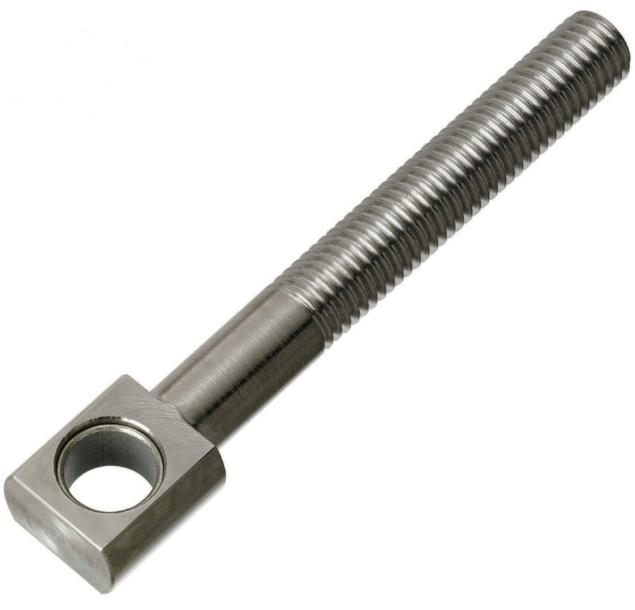Galvanized vs Stainless Steel Bolts: What You Need to Know
Choosing the right bolt is like selecting the perfect accessory, it directly impacts the stability and durability of your project. Galvanized bolts and stainless steel bolts are two of the most common options, each with its own strengths and potential challenges.
Wondering which bolt is best suited for your needs? This article will dive into the key differences between galvanized vs stainless steel bolts, helping you make a smart choice that ensures your project is not only stable but stands the test of time!

Table of Contents
Part 1. What are Galvanized Bolts?
Galvanized bolts are fasteners coated with a layer of zinc to prevent rust and corrosion. The galvanization process involves applying a thin zinc coating to steel bolts, which helps to protect them from the elements, particularly moisture.
These bolts are commonly used in outdoor or high-humidity environments, such as in construction, agriculture, and marine applications.
Advantages of Galvanized Bolts:
- Corrosion Resistance: The zinc coating provides excellent resistance to rust and corrosion, especially in mild to moderate exposure conditions.
- Cost-Effective: Galvanized bolts are more affordable than stainless steel bolts, making them a budget-friendly option for large-scale projects.
- Durability in Certain Environments: Ideal for outdoor applications where exposure to rain and moisture is prevalent.
Disadvantages of Galvanized Bolts:
- Limited Durability in Harsh Environments: While galvanized bolts offer good protection in many scenarios, they may not be as resistant to extreme conditions such as seawater or harsh chemicals.
- Zinc Coating Can Wear Off: Over time, the zinc layer can wear off, reducing its effectiveness.

Part 2. What are Stainless Steel Bolts?
Stainless steel bolts are made from a corrosion-resistant alloy composed primarily of iron, carbon, and a minimum of 10.5% chromium. This composition makes them highly resistant to rust, corrosion, and staining. Stainless steel bolts are ideal for applications requiring long-term durability and resistance to harsh environments.
Advantages of Stainless Steel Bolts:
- Superior Corrosion Resistance: Stainless steel bolts excel in harsh environments, including saltwater, chemicals, and high temperatures.
- Long-Term Durability: These bolts last longer than galvanized bolts in severe conditions, making them ideal for industries such as food processing, marine, and pharmaceutical.
- Aesthetic Appeal: Stainless steel bolts are visually appealing due to their shiny, polished finish, making them suitable for decorative or visible applications.
Disadvantages of Stainless Steel Bolts:
- Higher Cost: Stainless steel bolts are more expensive than galvanized ones due to the alloy’s material and manufacturing costs.
- Potential for Galling: Stainless steel can be prone to galling (wearing and sticking), particularly when threaded components are tightened too much.

Part 3. Key Differences Between Galvanized vs Stainless Steel Bolts
1. Corrosion Resistance
Galvanized bolts rely on the zinc coating to protect against corrosion, but this coating can wear off over time, especially with heavy usage.
In contrast, stainless steel bolts have a much stronger and longer-lasting resistance to corrosion, especially in harsh environments such as marine and chemical settings.
2. Appearance
Stainless steel bolts have a smooth, shiny surface, making them ideal for projects where aesthetics are important, such as in furniture or decorative applications.
Galvanized bolts, on the other hand, have a grayish-white coating that may appear rougher, making them suitable for projects where appearance is not a primary concern.

3. Strength and Durability
Stainless steel bolts typically outperform galvanized bolts in terms of strength and durability. Due to their alloy composition, stainless steel bolts maintain their integrity under high loads and in extreme conditions, while galvanized bolts may fail earlier under similar stress.
4. Cost
Galvanized bolts are more affordable than stainless steel bolts, making them an excellent choice for projects on a budget.
However, while stainless steel bolts are more expensive, they provide superior performance, making them worth the investment in high-demand or extreme environments.
Comparison Table of Stainless Steel Bolts vs. Galvanized
| Aspect | Stainless Steel Bolts | Galvanized Bolts |
| Material Composition | Made from an alloy of steel, chromium, and nickel. | Made from steel with a protective zinc coating. |
| Corrosion Resistance | Excellent resistance to rust and corrosion, especially in marine environments. | Good corrosion resistance but less durable in extreme environments like saltwater. |
| Strength | Slightly lower tensile strength compared to some high-strength steels. | High tensile strength due to the steel core. |
| Durability | Long-lasting in harsh environments with minimal maintenance. | Durable, but the zinc coating may wear off over time. |
| Appearance | Bright, polished, and aesthetically pleasing finish. | Dull, matte finish from the zinc coating. |
| Cost | More expensive due to material composition and corrosion resistance. | More affordable, ideal for cost-sensitive applications. |
| Environmental Exposure | Performs exceptionally well in high-moisture and saline conditions. | Suitable for general outdoor use, less effective in marine settings. |
| Maintenance | Virtually maintenance-free. | May require periodic checks to ensure the coating is intact. |
| Applications | Ideal for marine, medical, and high-corrosion environments. | Commonly used in construction, fencing, and general outdoor projects. |
| Lifespan | Long lifespan, especially in harsh environments. | Moderate lifespan; dependent on the durability of the zinc coating. |
Part 4. How to Choose the Right Bolt for Your Needs?
Choosing the right bolt for your needs is a crucial step in ensuring the strength, durability, and reliability of your project. Below are some expanded guidelines to help you make the best decision.
1. Budget-Conscious Projects
If you’re working on a project with a limited budget and the conditions are not harsh, galvanized bolts can be a great option. Coated with zinc for basic corrosion resistance, they’re ideal for home construction, light industrial uses, or outdoor furniture.
However, they may not hold up in harsh conditions like saltwater or chemical exposure.
2. High-Strength and Corrosion-Resistant Projects
For applications where strength and resistance to corrosion are paramount, such as marine environments, chemical processing facilities, or high-temperature operations, stainless steel bolts are the preferred choice. These bolts are made from alloys that include chromium, which provides enhanced resistance to rust and corrosion.
3. High-Temperature Applications
In applications where high temperatures are common, such as in engines, exhaust systems, or boilers, heat-resistant bolts made from specialized materials like stainless steel or alloy steel should be considered.
These bolts are designed to maintain their strength and performance even under intense heat, reducing the risk of deformation or failure.

4. Heavy-Duty and High-Load Projects
If your project requires bolting to withstand heavy loads or stress, choosing high-strength bolts made from carbon steel or alloy steel is a necessity. These bolts are designed to handle extreme pressure and provide strong, secure fastening.
They are typically used in heavy machinery, construction, and automotive applications where durability and load-bearing capacity are critical.
5. Corrosion Resistance in Specific Environments
In certain industrial or outdoor applications, bolts may be exposed to specific elements that can cause accelerated corrosion, such as chemicals, saltwater, or humidity.
For these cases, you may want to consider specialty coatings or bolts made from materials such as titanium or duplex stainless steel, which offer superior corrosion resistance in harsh environments.
Final Thoughts
The decision between galvanized and stainless steel bolts ultimately depends on the specific needs of your project. If you work in a mild corrosion environment and need a cost-effective solution, galvanized bolts are an excellent choice. However, for projects that require superior performance in harsh conditions and long-term durability, stainless steel bolts are the better option. For high-quality stainless steel fasteners, KENENG, a trusted fastener manufacturer, is your ideal partner!

